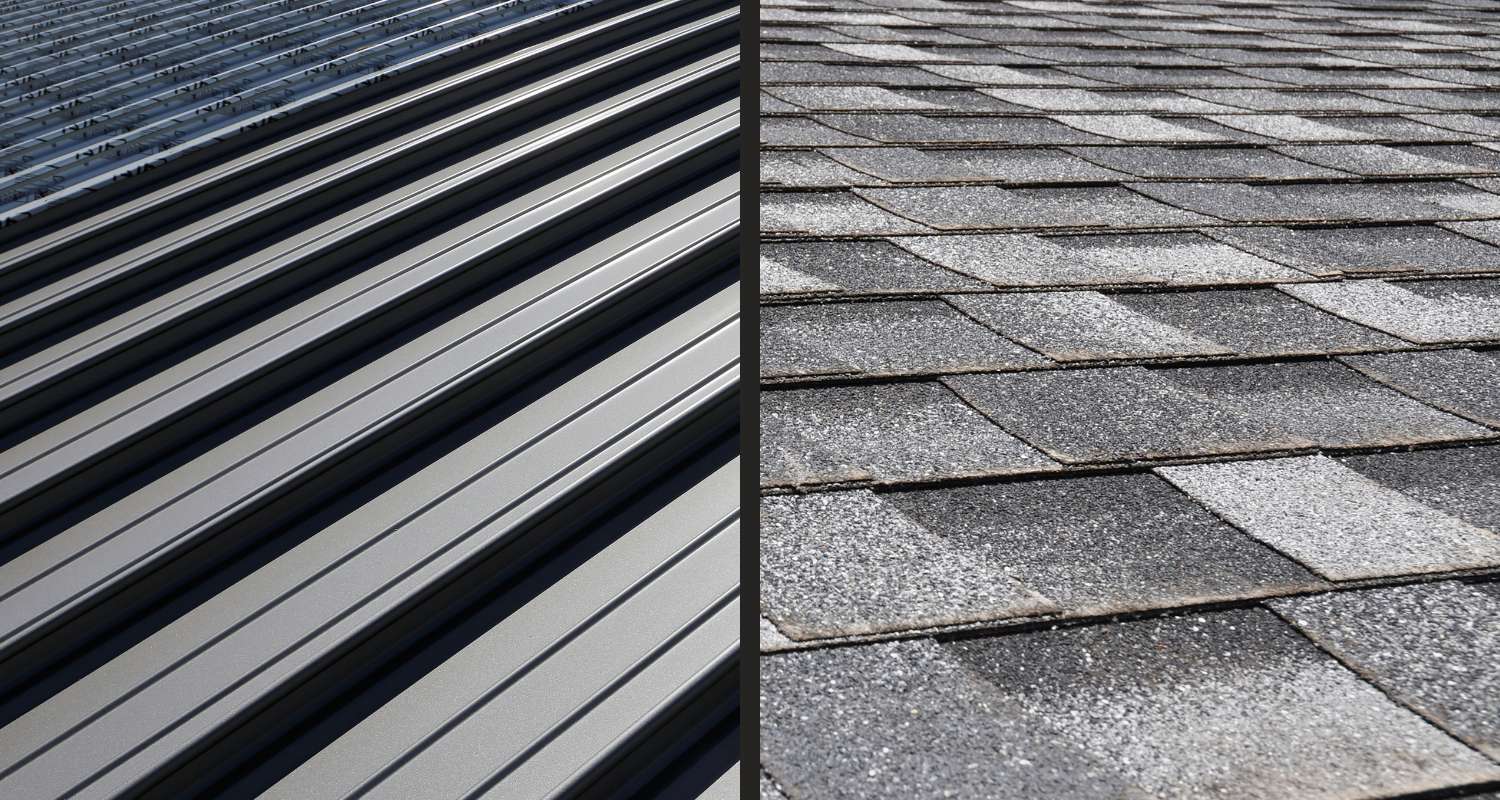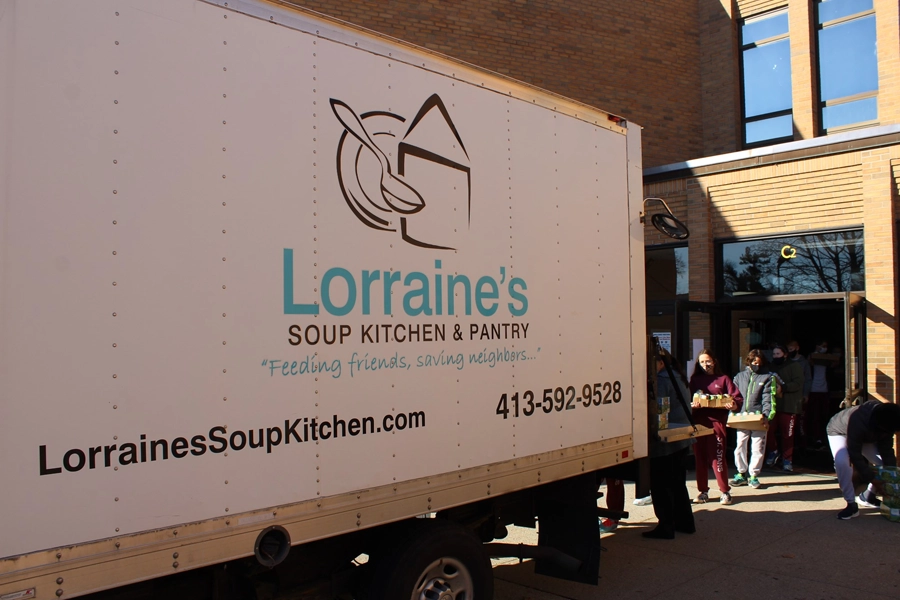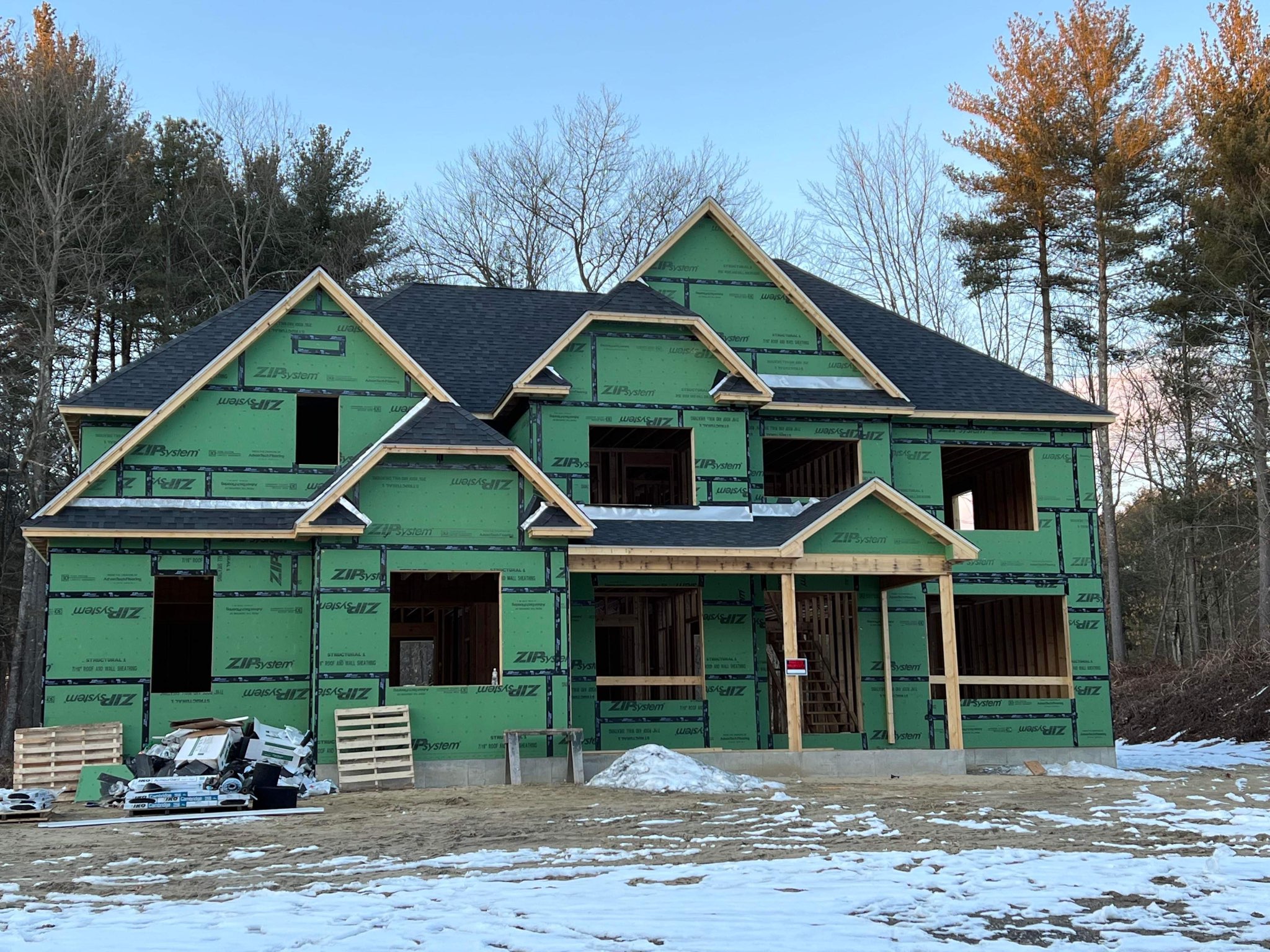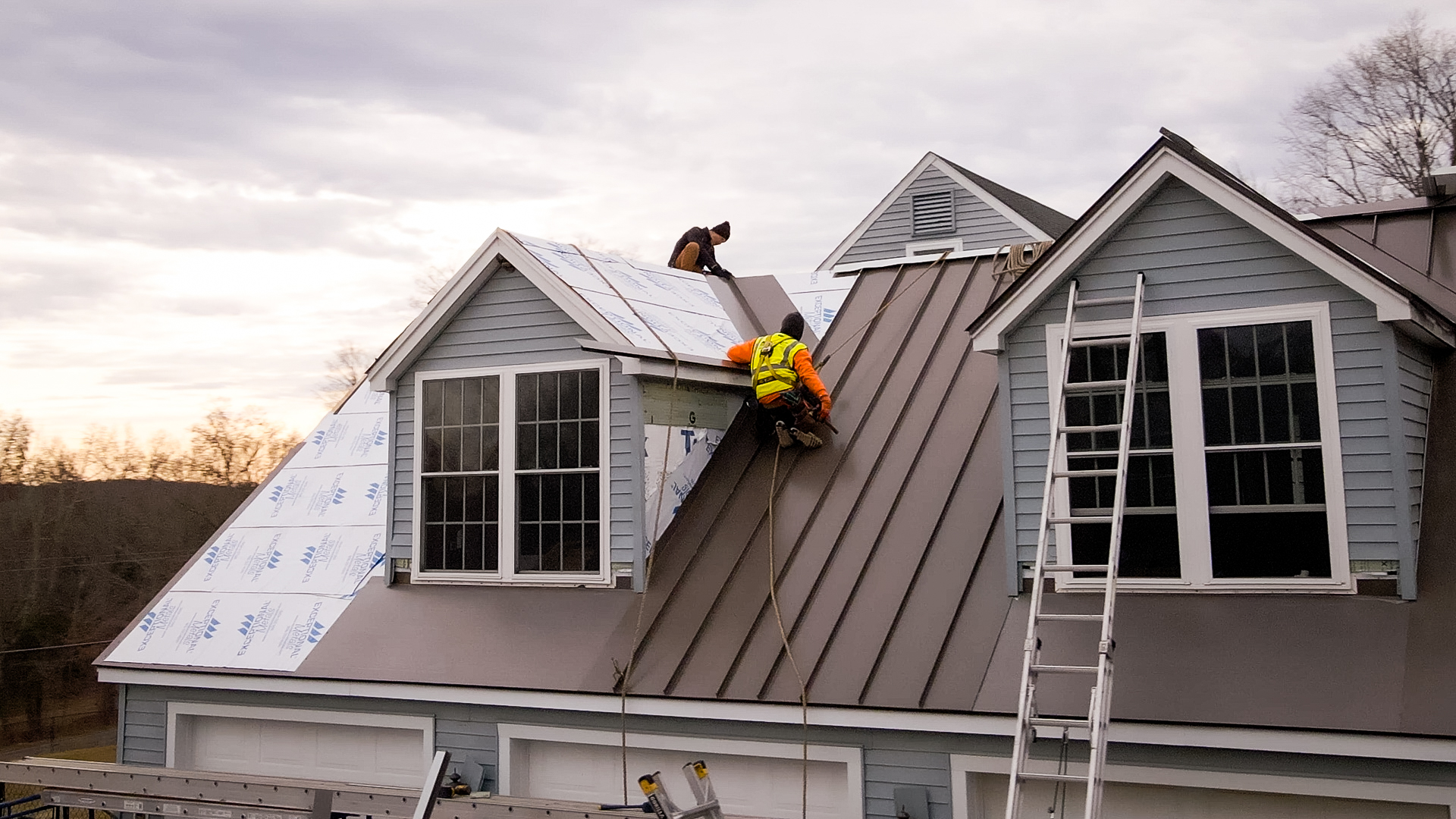Metal and asphalt are two of the most common materials used in residential roofing, offering distinct benefits and challenges. While asphalt shingles have been the traditional choice for many homeowners, metal roofing is gaining traction for its durability and sustainability. As we explore these options, understanding their differences is crucial for homeowners considering a roof replacement or installation.
Metal roofs are increasingly popular due to their longevity and energy efficiency. They offer significant advantages in terms of durability and maintenance, making them a smart choice for homeowners looking for a long-term investment. This growing popularity is also driven by the aesthetic flexibility and environmental benefits that metal roofs provide.
At Adam Quenneville Roofing & Siding, we put our clients first. We will delve into the pros and cons of both asphalt and metal roofs, providing a comprehensive overview to help homeowners make informed decisions. Let’s explore key factors such as durability, cost, maintenance, and aesthetics, all crucial when considering a metal roof vs asphalt shingles.
Residential Metal Roofs: Pros and Cons
Understanding the strengths and weaknesses of different metal roof types can help homeowners weigh their options effectively.
Advantages of Residential Metal Roofing
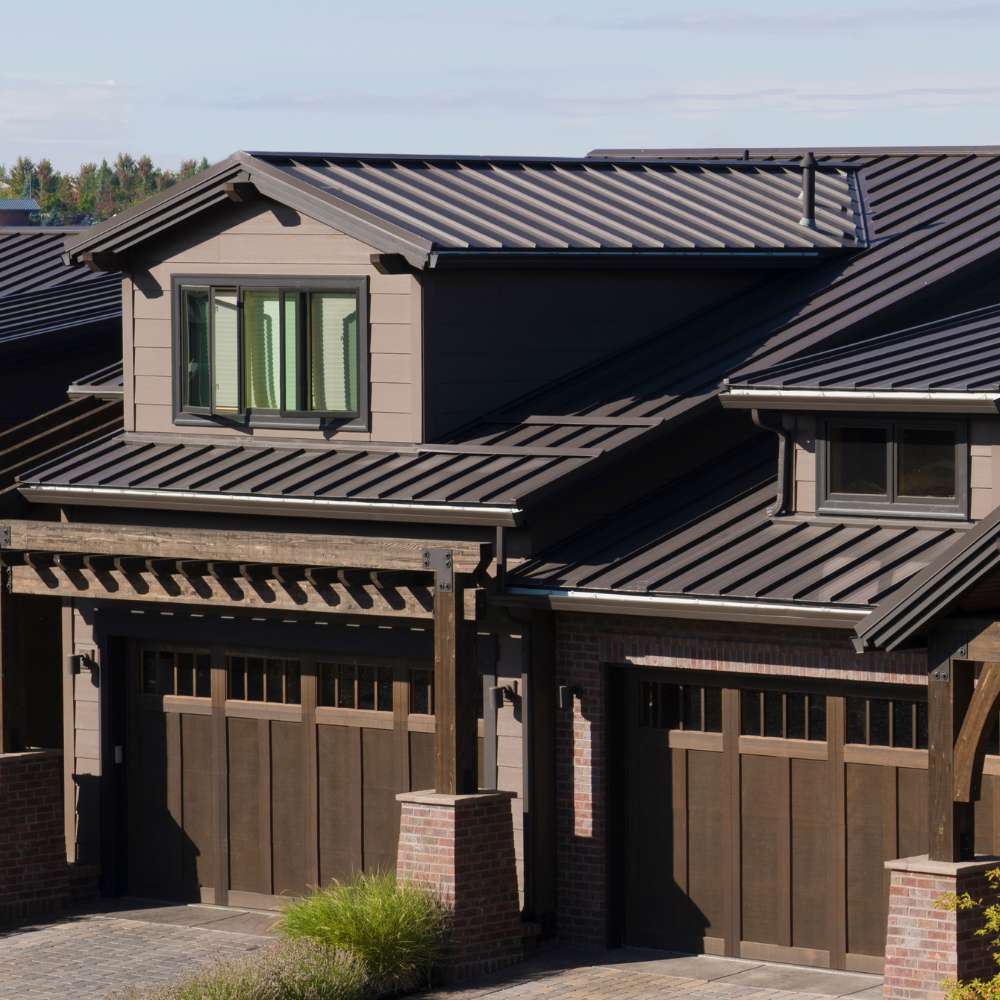
- Metal roofs boast an impressive lifespan of 40 to 70 years, significantly outlasting most asphalt shingle roofs. This longevity can translate into substantial cost savings over time, as the need for frequent replacements is greatly reduced.
- These roofs are highly resistant to fire, wind, hail, and other extreme weather conditions, making them an excellent choice for safety and durability. Their ability to withstand severe storms can provide homeowners peace of mind in areas prone to inclement weather.
- Metal roofs reflect solar radiant heat, which can help reduce cooling costs during the hot summer months. This reflective capability saves money and enhances the comfort of your home.
- With minimal upkeep required, metal roofs resist moss, mildew, and rot, which are common issues with other roofing materials. This resistance helps maintain the roof’s integrity and appearance without the need for constant cleaning or repairs.
- Metal roofing materials are often made from recycled materials and are fully recyclable at the end of their life. This sustainable lifecycle appeals to environmentally conscious homeowners looking to reduce their ecological footprint.
Disadvantages of Residential Metal Roofing
- The initial cost of installing common types of metal roofing is typically higher than asphalt roofs. This upfront investment can be a deterrent, although the long-term savings and durability often offset the initial expense.
- While highly durable, metal roofs can be susceptible to denting from falling branches or hail. These cosmetic damages do not typically affect the roof’s performance but can be concerning from an aesthetic viewpoint.
- Installing metal roofs requires specific skills and knowledge, which can increase labor costs. Finding experienced contractors specializing in metal roofing ensures a high-quality installation.
Asphalt Shingles: Pros and Cons
Asphalt shingles are popular for many homeowners due to their cost-effectiveness and versatility
Advantages of Asphalt Shingles
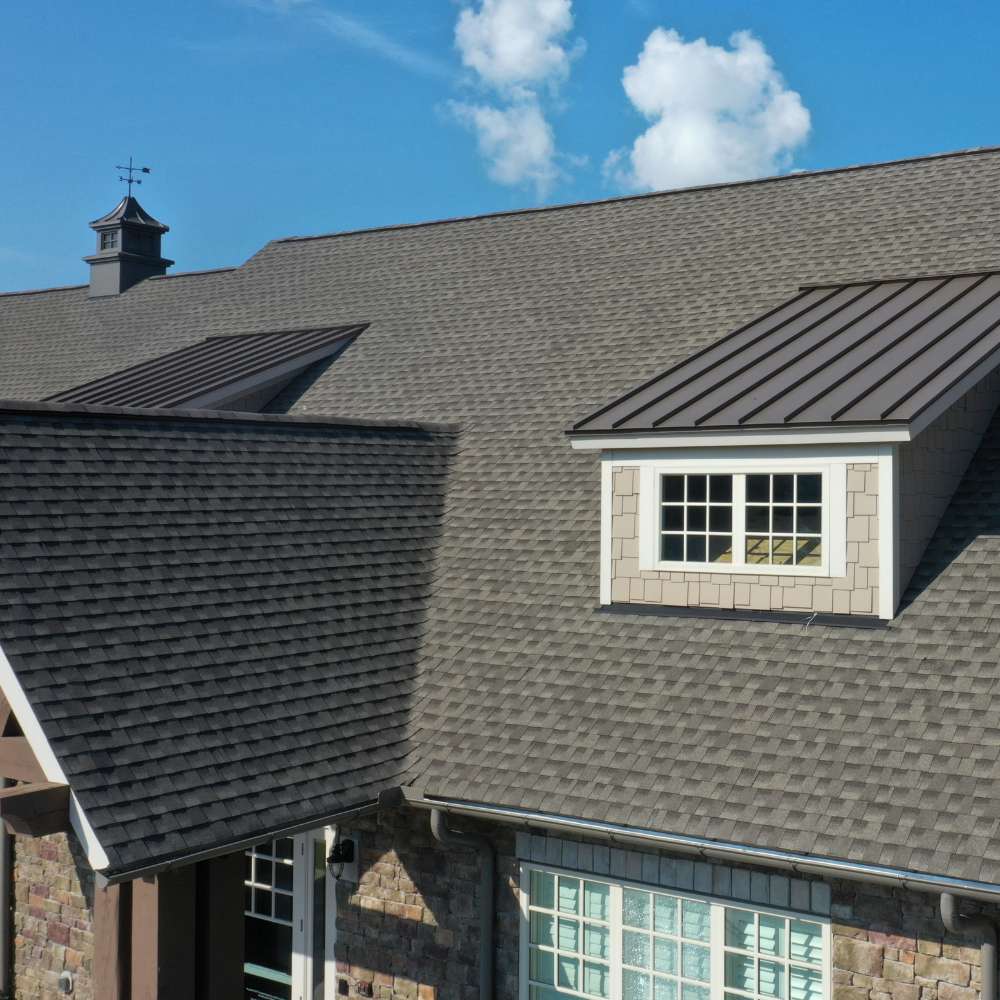
- Asphalt shingles are generally more affordable than metal roofs in terms of materials and installation. This affordability makes them a popular choice for homeowners on a budget.
- Available in a variety of colors and styles, asphalt shingles can be easily matched to any home’s aesthetic. This variety allows for significant customization in home design.
- The installation process for asphalt shingles is quicker and simpler than metal roofing, which can significantly reduce labor costs. This ease of installation can make the overall roofing project quicker and less disruptive.
- Asphalt shingles are a well-established roofing option with a long track record, making them a trusted choice among homeowners and contractors alike.
Disadvantages of Asphalt Shingles
- Asphalt shingles typically last 15 to 30 years, which means they may require more frequent replacements than metal roofs. This shorter lifespan can lead to higher long-term costs.
- These shingles can be vulnerable to damage from high winds, hail, or extreme temperatures, potentially leading to leaks or the need for repairs. Such vulnerabilities necessitate regular maintenance and inspections.
- Asphalt shingles are made from non-renewable resources and are less likely to be recycled, often ending up in landfills. This can be a significant environmental concern for eco-conscious homeowners.
Factors to Consider When Deciding on a Residential Metal Roof
When considering a metal roof for your home, several factors need to be evaluated to ensure you make the best decision for your specific needs.
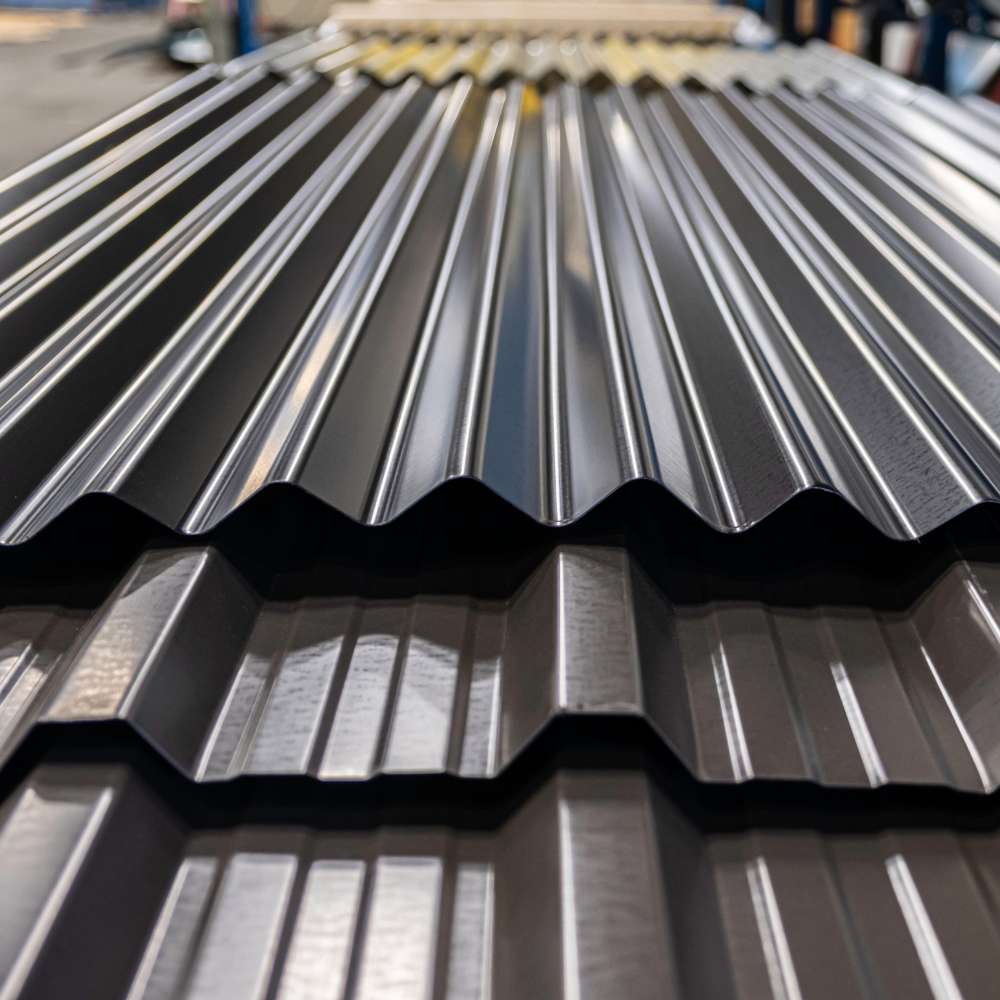
Material Types
Steel: Known for its durability and affordability, steel is a common choice for metal roofing. When properly treated, it’s rust-resistant and suitable for a variety of climates.
Copper/Zinc: These premium materials offer exceptional longevity and gradually develop a patina that can enhance the roof’s aesthetic appeal. While more expensive, they are highly durable and offer a distinctive look.
Cost
It is important to consider both the initial and long-term costs of a metal roof. While the upfront cost is higher than asphalt, the extended lifespan and reduced metal roof maintenance can provide significant savings over time.
The cost of a metal roof can also vary based on the material chosen, the complexity of the installation, and potential energy savings. These factors should be carefully evaluated to determine the most cost-effective solution for your home.
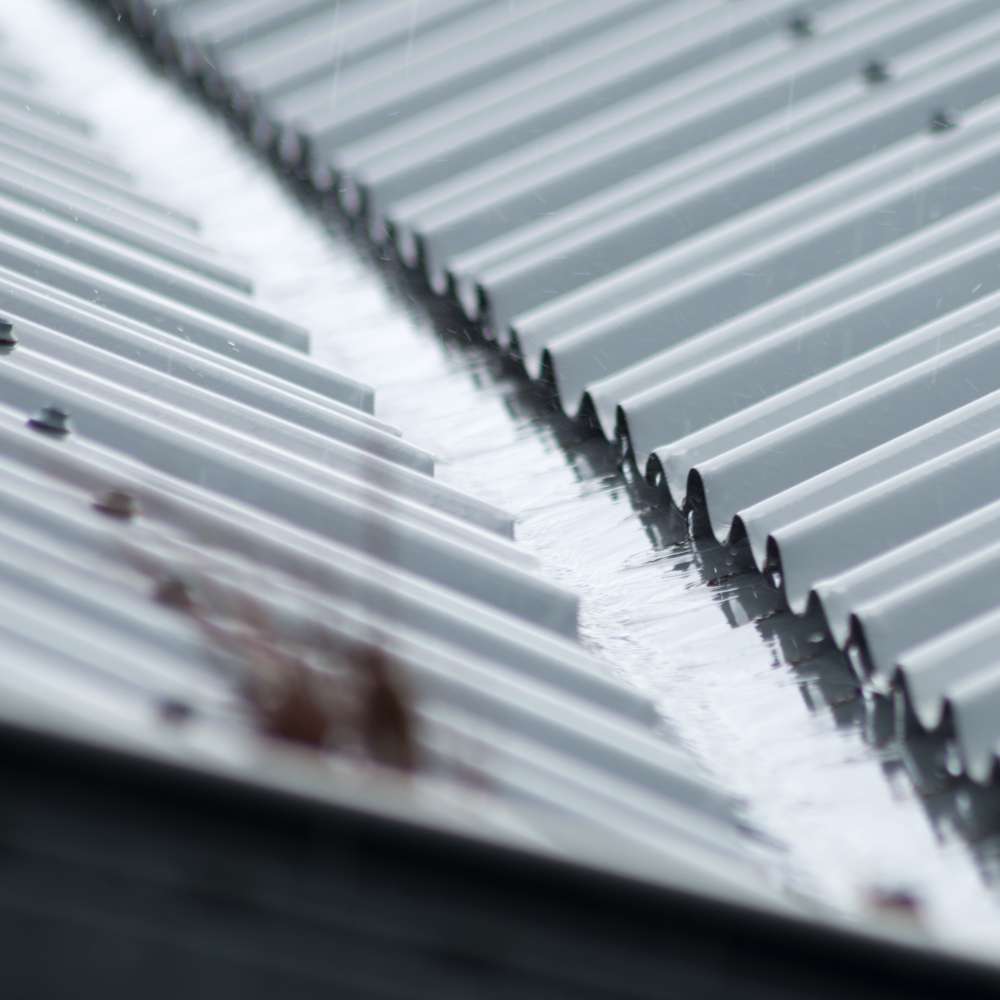
Durability & Longevity
Depending on the material and maintenance, metal roofs can last 40 to 70 years. This longevity significantly surpasses that of asphalt shingles.
Metal roofs’ superior weather resistance makes them an excellent choice for areas prone to severe weather. Their ability to resist fire, wind, and corrosion contributes to their long lifespan and durability.
Aesthetics
Metal roofs come in various styles, including modern standing seam and traditional metal shingles or tiles. This wide variety allows homeowners to choose a style that best fits their home’s architecture.
The wide range of color options available with metal roofing can enhance a home’s curb appeal and, by reflecting heat, contribute to a reduced energy cost.
Maintenance
Metal roofs require minimal maintenance, typically including occasional cleaning and inspections for dents or signs of rust. This ease of maintenance can be a major advantage for homeowners who prefer a low-care solution.
Energy Efficiency
The reflective properties of metal roofs can significantly reduce cooling costs by reflecting solar heat away from the home. This feature is particularly beneficial in warmer climates.
Adding insulation during the installation of a metal roof can boost its energy efficiency, helping to keep the home warm in winter and cool in summer.

Environmental Impact
Metal roofs are an excellent choice for homeowners looking to reduce their ecological footprint. They are typically recyclable at the end of their lifespan, unlike asphalt shingles, often dumped into landfills. This sustainable lifecycle significantly decreases waste and the use of new raw materials.
Resale Value
Investing in a metal roof can significantly enhance a home’s resale value and curb appeal. Metal roofs’ durability, low maintenance, and aesthetic versatility make them attractive features for potential buyers, setting properties apart in the real estate market.
Local Codes & HOA
Before installing a metal roof, it is crucial to understand and comply with local building codes and homeowners association (HOA) rules. Local codes may dictate specific requirements regarding the type of metal, color, style, or installation methods to ensure safety and community coherence. Similarly, HOA guidelines might restrict or favor certain aesthetics to maintain a uniform look within the neighborhood.
AQRS Is Ready To Install Your Residential Metal Roof Today
Metal roofs offer numerous benefits, including durability, energy efficiency, and minimal maintenance, making them a smart choice for many homeowners. Understanding these advantages can help you decide whether a metal roof is right for your home.
Adam Quenneville Roofing & Siding has extensive experience in the roofing industry, particularly with metal roofs. Our expertise ensures that your metal roof installation will be handled professionally, maximizing the benefits of this roofing option.
Contact us today for a free estimate or to discuss the best roofing style for your home. Don’t miss the opportunity to enhance your home with a durable, energy-efficient, and attractive metal roof.

